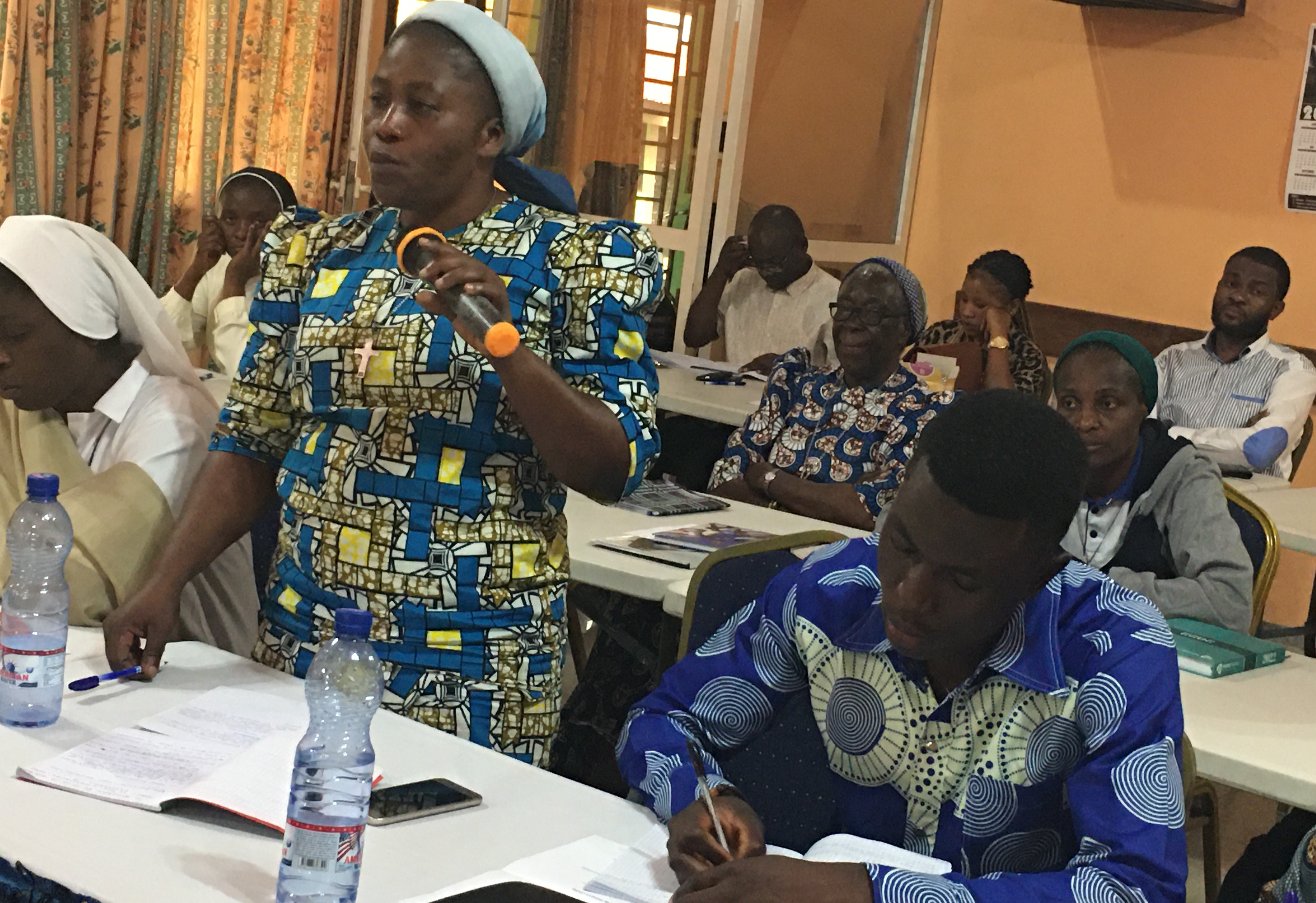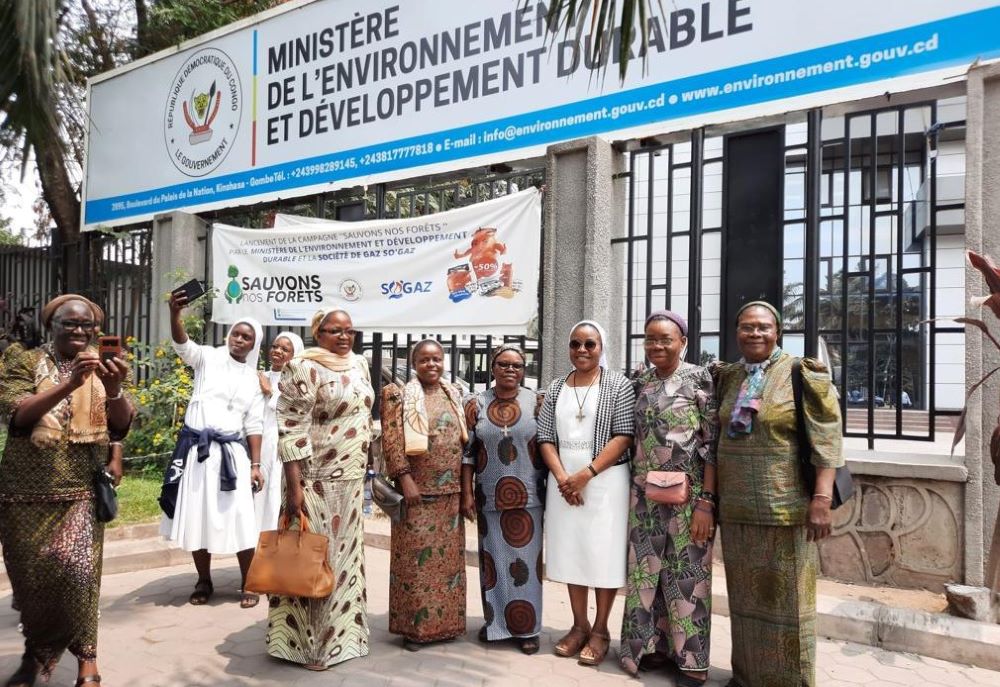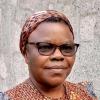
Sr. Micheline Toto, a Sister of St. Joseph of Cuneo, speaks at a meeting that taught advocacy techniques. (Courtesy of Eucharia Madueke)
Sister of Notre Dame de Namur Eucharia Madueke from Nigeria imagined an effective method of proclaiming God's goodness: teaching people to speak for themselves, teaching them how to make themselves known and to make known the most sensitive needs of their societies. Then she began to work on mobilizing the nuns of different African countries to teach them advocacy, through her work in the Africa Faith and Justice Network, or AFJN.
At first, she went only to English-speaking countries, but finally decided that language could not be an obstacle to her mission. After working in Uganda, Kenya, Tanzania, Ghana, Nigeria and Cameroon, she and Dominican Fr. Aniedi Okure (former executive director of AFJN ) defied the language barrier to travel to the Democratic Republic of Congo, a French-speaking country. For three days, Sister Eucharia and other speakers led a workshop on environmental pollution and its impact on health, and taught us the techniques of advocacy.
This workshop brought together about 50 sisters from about 20 congregations who affirmed with appreciation that it was their first time participating in a workshop dealing with social problems. Their formation programs generally had focused on religious and spiritual life. After learning the techniques of advocacy, all the sisters agreed to visit the ministries of environment and health at city hall to advocate against pollution that is becoming more and more a scourge for the city of Kinshasa.
It was interesting and encouraging to hear the police at the ministry of health exclaim: "Many sisters come here; who provoked the church? Is there a problem with the government?" At the ministry of the environment, one of the police officers addressed a sister, saying: "School fees are too expensive in your schools, I have two children there." One of her teammates reacted by responding: "In these schools, they provide quality education. If your child ends up in a Catholic school run by nuns, you will be satisfied with his education." And finally, the police officer nodded to affirm that was true.

Sisters visit the ministry of the environment at city hall in Kinshasa to advocate for the environment. (Courtesy of Eucharia Madueke)
Indeed, the Catholic Church in the Democratic Republic of the Congo has difficult relations with the state, because it always speaks up against the evil that is destroying our country. The workshop for the nuns was an opportunity to approach leaders and see to what extent collaboration can be possible to improve social conditions.
Since our advocacy visit, the minister of the environment has become very active. We saw him several times on television raising awareness against environmental pollution. The ministry is proposing concrete actions to clean up our living environments, and city hall has added machines for collecting waste.
For World Clean Up Day government officials in Kinshasa launched an appeal to all Congolese, and Kinois (people who live in Kinshasa) in particular, to participate to become aware of problems and change their behavior to take care of us and our planet.
Advertisement
In view of all the above, religious congregations have taken measures to involve students, their collaborators and their parishioners — especially young people — in education against the consumption of sweets, pollution and how they might take concrete action to fight against global warming and pollution. The national coordinator of Catholic charter schools has awarded certificates to schools that have distinguished themselves in the fight against climate change and environmental pollution.
As Sisters of Notre Dame de Namur, we opted to work on reforestation by focusing on planting fruit trees. Other areas of focus for us will be collecting waste, and avoiding food and drink containing harmful chemicals.
"My people perish for lack of knowledge" (Hosea 4:6). God spoke twice to complain that His people were perishing: once for lack of vision, the second time for lack of knowledge. Lack of vision and knowledge are two barriers that sometimes even children ignore, but we must all give of our time, have the will and energy to address, or sometimes even risk our lives to impart knowledge that helps to awaken the consciousness of others.






